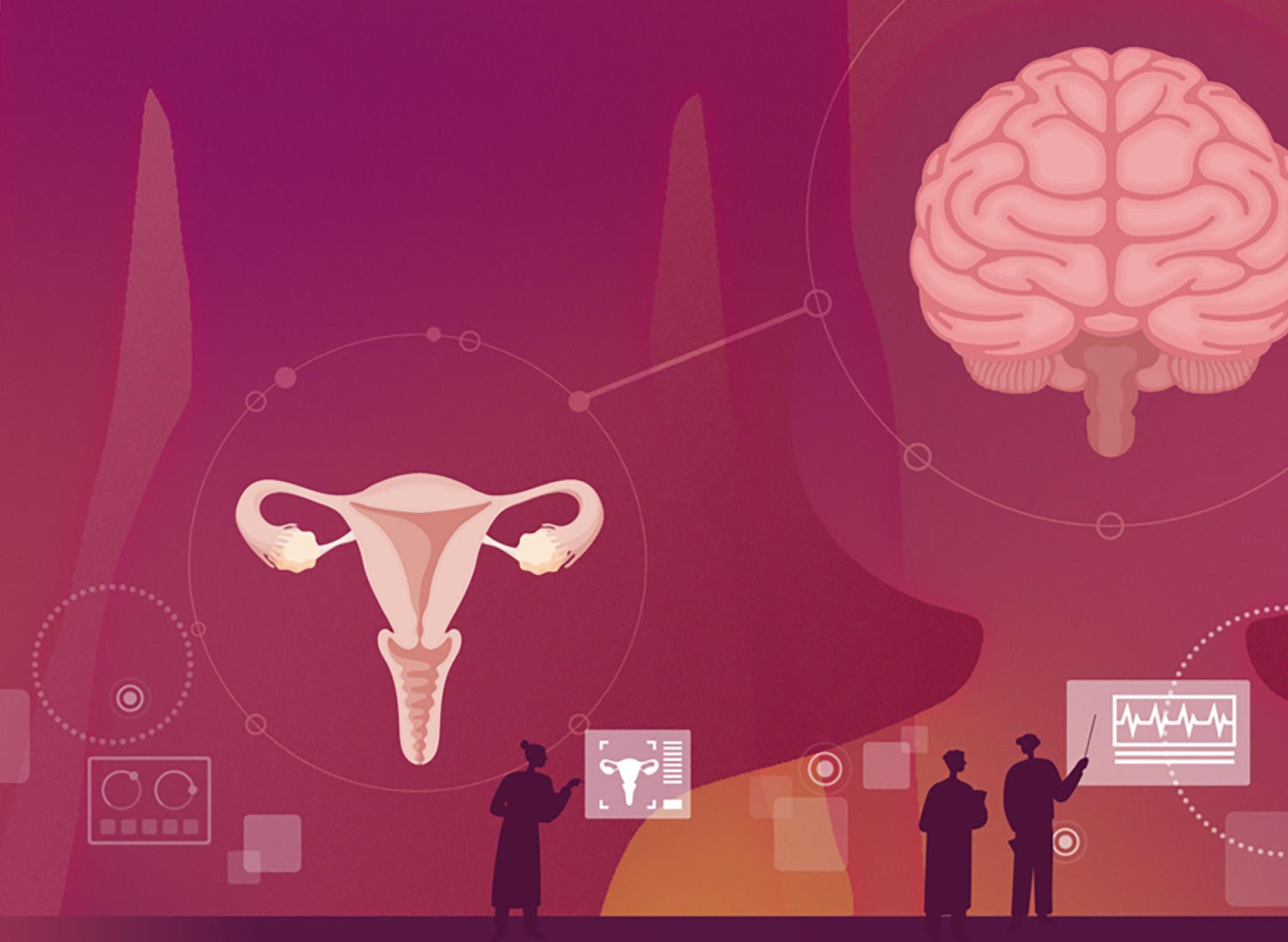
2 minute read
Revealing the surprising uterus-brain connection
Around one quarter of all women in the U.S. have their uterus surgically removed by the age of 65 in a procedure known as a hysterectomy, according to the Centers for Disease Control and Prevention.
Hysterectomy is the second most common surgery for women after the C-section. While the procedure is necessary in some cases to treat cancer, it’s also used widely for oftendebilitating conditions like abnormal bleeding or uterine fibroids.
But a growing body of research is revealing that the uterus is more of a powerhouse organ than previously thought, with connections to the immune system and heart . Now, scientists with ASU’s Behavioral Neuroscience of Memory and Aging Lab have added to this evidence with their recent finding that the uterus — and its removal — may have a direct impact on brain function. The lab investigates the roles that sex, hormones and brain chemistry play in brain function and cognition at different ages.
In an initial study, the team used a water maze to test rodents’ cognitive function after a hysterectomy and found that those that had the uterus (but not the ovaries) removed had impaired working memory six weeks later. A follow-up study revealed the impaired memory persisted after six weeks, six months and even one year.
The more we understand about the female body, the more women and their doctors can make informed decisions about the possible consequences of removing a gynecological structure that has been traditionally described in medical texts as dormant and useless when not carrying a fetus. We must have the courage to keep moving scientific discovery into uncharted territories and overturn dogma when the science tells us to.










